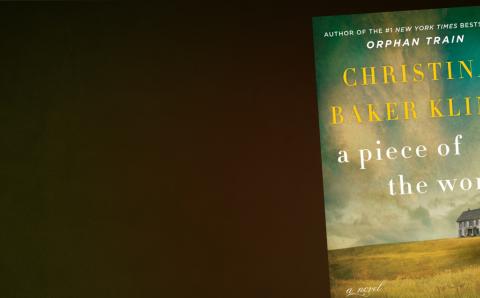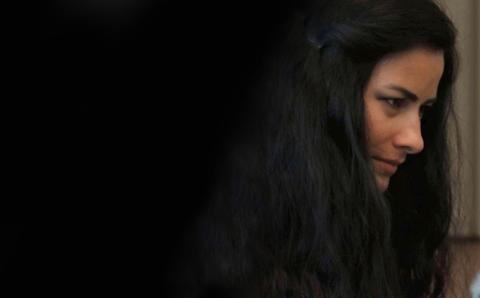After long and careful consideration, Synod 2017 adopted the Belhar Confession as a non-binding, footnoted contemporary testimony. (Synod is the annual gathering of the Christian Reformed Church.)
The Belhar Confession was created by Reformed Christians in South Africa in 1982 as a response to the sin of apartheid. Its themes are justice, unity, and reconciliation in the body of Christ. The Dutch Reformed Mission Church, now part of the Uniting Reformed Church in South Africa, offered it to the worldwide Reformed community as a new confession.
The decision by Synod 2017 means that the Belhar is now considered “a dynamic statement of faith that serves the CRCNA--its congregations and members--as a statement that is essential for a given time period." Those words come from the definition of a contemporary testimony that Synod 2017 also adopted. “Our World Belongs to God,” a CRC statement of faith, is also a contemporary testimony.
Over the past six years, the Christian Reformed Church has wrestled with its response to the Belhar. Synod 2012 decided against adopting it as a church confession, which would have placed it alongside the Heidelberg Catechism, the Belgic Confession, and the Canons of Dort. Instead, that synod created a new category, calling it an ecumenical faith declaration.
But afterward, CRC leaders discovered that other denominations were confused by the ecumenical faith declaration category. So in 2016, a proposal was made to adopt the Belhar as a contemporary testimony on par with “Our World Belongs to God.”
“Many churches have contemporary statements of faith, modern confessions, so this is something they would be able to recognize,” said Jim Payton, chair of the denomination’s Ecumenical and Interfaith Relations Committee.
Delegates raised numerous concerns. One major concern was that ministers, elders, and deacons would have to agree with the Belhar in order to serve in the church, since the original contemporary testimony (“Our World Belongs to God”) is referred to in the covenant to which ministers, elders, and deacons must agree. In response, synod voted to add this statement to its decision: “Adherence to the Belhar Confession shall not be included in the Covenant of Officebearers.”
Some delegates decried some of the Belhar’s content, as had many before them at previous synods. They argued that the Belhar contains faulty liberation theology and makes overly inclusive statements that could be misinterpreted.
One of these was George Koopmans, Classis Alberta South/Saskatchewan. “The way to battle evil is not with bad theology,” he said. “The Belhar Confession is based on liberation theology . . . and says that no social factor can exclude one from the church. This is too vague.”
But some, including Wayne Coleman, Classis Thornapple Valley, passionately defended that theology: “To be theological is not just to be intellectual. Theology is also part of our heart,” said Coleman. “It is the letter of the law that caused some of the pain and suffering that churches were involved in. The Belhar Confession is about the Spirit of God.”
Ecumenical guest Henk Stoker from the Reformed Churches in South Africa, which has long opposed the confession, asserted that “none of the churches in the global south embrace the Belhar, except [the denomination] in which it originated.” He continued, “We care deeply about the conditions of your people, but the theology of liberation . . . is one of the reasons that [we] do not embrace the Belhar.” Reformed Church in America adopted the Belhar as a full confession in 2010. It was similarly adopted by the Presbyterian Church-USA in 2016.
Many other delegates had their say. The discussions led to a provision “to include footnoted comments with the Belhar Confession to provide biblical and confessionally-grounded clarity to the parts of the Belhar that are widely recognized to cause disagreement and alarm.”
The last person to speak before delegates voted was young adult representative Onalee Sneller, who urged synod not to “contemplate too long and refuse to take steps forward.” She added, “The Lord is faithful. If we take steps forward, the Lord will be faithful to his calling on us to be workers for justice.”
Synod did that, adopting the Belhar Confession as a non-binding contemporary testimony. Several delegates submitted strongly worded negative protests following the vote.
Synod 2017 is meeting at Trinity Christian College in Palos Heights, Ill., from June 9-15. For continuous coverage, download the Banner app on your mobile device or follow The Banner Magazine on Facebook or @crcbanner on Twitter. You can find more tweeting by following hashtag #crcsynod. News stories will be posted at thebanner.org several times daily. For CRC Communications releases and the webcast, please visit crcna.org. Unless noted otherwise, all photographs are by Karen Huttenga.
About the Author
Roxanne VanFarowe is a freelance writer who claims both Canadian and American citizenship and grew up in the Christian Reformed Church. She is a member of Blacknall Presbyterian Church in Durham, North Carolina.









